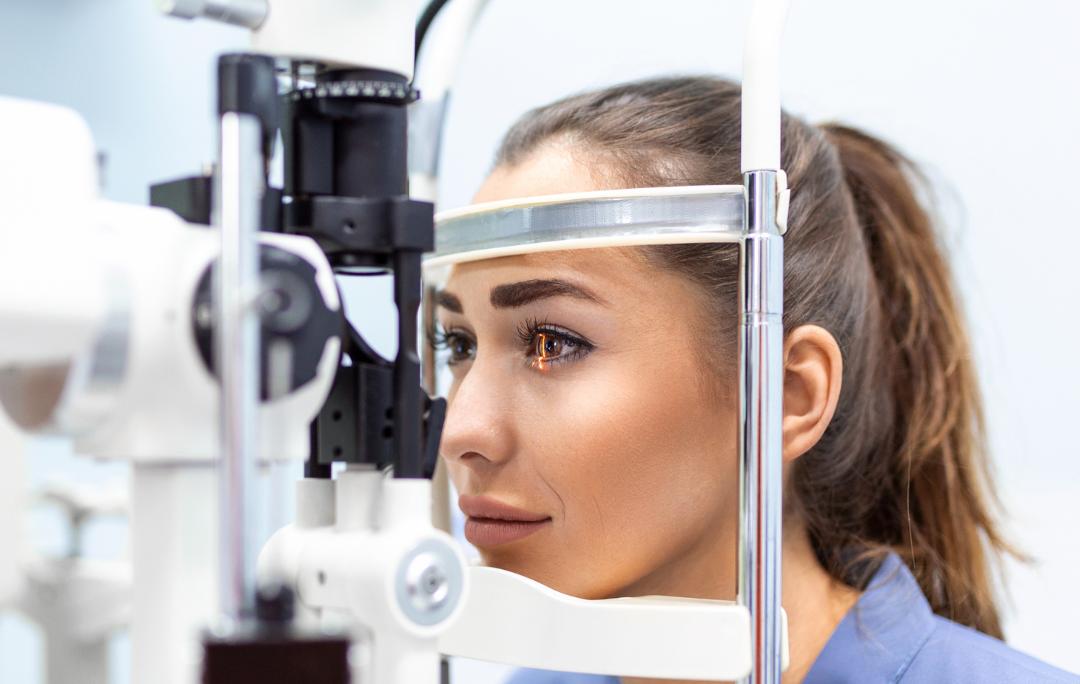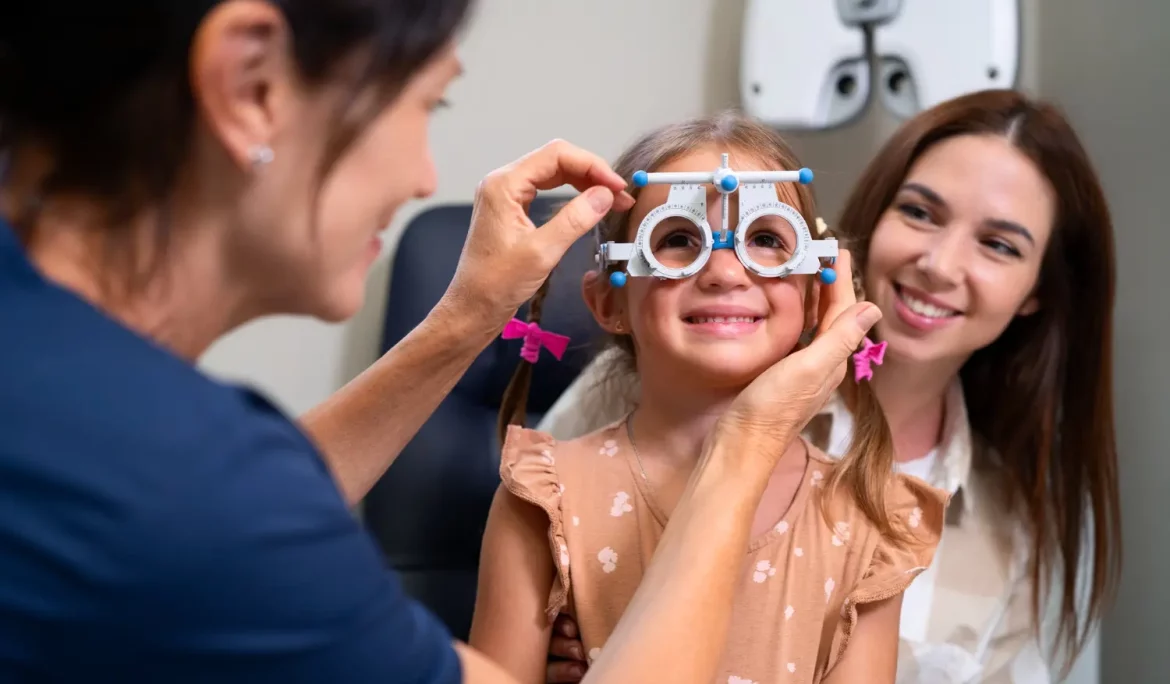An eye exam might seem straightforward. Walk in, get checked, and walk out with answers.
But a few simple mistakes before your appointment could mess with your results.
Things like too much screen time, skipping meals, or even wearing the wrong makeup can affect how well your optometrist assesses your vision.
To make sure you get the most accurate prescription and a smooth experience, here’s what you should avoid before visiting Signal Hill eye clinic.
1. Wearing Contact Lenses Right Before Your Eye Exam
If you wear contact lenses regularly, it’s important to give your eyes a break before your exam. Contacts slightly reshape the cornea, which can temporarily alter your vision and lead to an inaccurate prescription test.
Soft lenses should be removed at least 12 to 24 hours before your appointment, while rigid gas-permeable (RGP) lenses may require a longer break. Skipping this step could result in an incorrect prescription, leading to discomfort with new glasses or contacts.
In order to get the most precise results, let your eyes return to their natural state before your visit.
2. Excessive Screen Time Before Your Appointment
Spending hours on your phone, computer, or tablet before an eye exam can put unnecessary strain on your eyes.
Digital screens cause reduced blinking, dryness, and temporary blurred vision, making it harder to get an accurate assessment of your prescription. If your eyes are already fatigued from prolonged screen use, you might misjudge letters on the vision test or experience discomfort during the exam.
To avoid this, cut back on screen time for at least an hour before your appointment and give your eyes a chance to reset. Taking breaks beforehand helps ensure your optometrist gets a true picture of your vision.
3. Drinking Too Much Caffeine Before Your Eye Test
While a morning coffee can help wake you up, too much caffeine before an eye exam isn’t ideal. Caffeine can temporarily increase eye pressure and dilate your pupils, which may affect certain eye tests, particularly those checking for glaucoma.
Additionally, caffeine can lead to mild eye twitching and dryness, making it harder to focus during the exam.
Instead of overloading on coffee or energy drinks, try to limit caffeine intake a few hours before your appointment to keep your results as accurate as possible.
4. Skipping Meals or Not Drinking Enough Water
Going to your eye exam on an empty stomach or without proper hydration can impact how you feel during the appointment.
Low blood sugar from skipping meals can lead to dizziness, lightheadedness, and even temporary vision fluctuations, which may interfere with your test results. Similarly, dehydration can cause dry eyes, making certain exams uncomfortable.
To keep your vision steady and ensure you feel your best, have a balanced meal and drink water before your exam. This will help maintain clear and comfortable vision throughout the appointment.
5. Wearing Heavy Eye Makeup or Skincare Products
Eye makeup and certain skincare products can interfere with your exam in ways you might not expect.
Thick mascara, eyeliner, or eyeshadow can smudge onto testing equipment, making it harder for your optometrist to get clear readings. Some skincare products, like oily creams or serums, may also cause temporary blurriness if they seep into your eyes.
Note: Keeping your eye area free from heavy products ensures a more accurate exam and prevents unnecessary complications during testing.
6. Forgetting Your Glasses or Contact Lens Prescription
Your optometrist relies on your current glasses or contact lens prescription to track changes in your vision and ensure accurate adjustments. Without them, it becomes harder to compare past prescriptions or fine-tune a new one. Bringing your eyewear also helps assess how well your current lenses are working for you.
Having everything on hand saves time and helps your optometrist provide the best possible recommendation for your eyesight.
7. Not Getting Enough Sleep the Night Before
A poor night’s sleep doesn’t just leave you feeling groggy, it can also affect your vision.
Blurriness, dry eyes, and trouble focusing are common side effects of sleep deprivation, which may interfere with certain tests. Tired eyes may struggle with contrast sensitivity or adjusting between light and dark settings, leading to less precise results.
A well-rested mind and body allow your eyes to function normally during the exam, leading to a clearer and more accurate assessment.
8. Using Eye Drops That Can Affect Test Results
While eye drops can relieve irritation or redness, certain formulas temporarily alter the way your eyes look and feel, which can interfere with some tests.
Redness-reducing drops constrict blood vessels, potentially affecting eye pressure readings, while lubricating drops may possibly or temporarily coat the surface of the eye, impacting clarity tests.
If you use prescription drops for a medical condition, let your optometrist know so they can interpret your results accurately and adjust testing if needed.
9. Rushing to Your Appointment Without Eye Rest
Running late or heading straight to your eye exam from work, school, or long hours of screen use can leave your eyes tired and overworked, affecting test results.
When your eyes don’t have time to relax, they may feel strained, dry, or unfocused, which can make it harder for your optometrist to get an accurate reading. Arriving early and giving your eyes a break, whether by closing them for a few minutes or avoiding screens before your exam, helps ensure more natural, precise results.
10. Ignoring Vision Changes Before Your Exam
Even minor vision changes can signal a shift in your eyesight, yet many people dismiss blurriness, light sensitivity, or frequent headaches as temporary issues.
Failing to mention these symptoms during your appointment could mean missing out on an updated prescription or early detection of an underlying eye condition.
Being aware of any differences in your vision and sharing them with your optometrist allows for a more thorough evaluation and ensures you receive the right care for your needs.
Final Thoughts
A great eye exam starts before you even step into the clinic. And through avoiding these common mistakes, you ensure accurate test results, a smooth experience, and the best possible care for your vision.
It’s also worth remembering, small changes, such as giving your eyes a break, staying hydrated, and sharing any concerns with your optometrist, can make a big difference in how effective your visit is.
If you’re in Calgary, consider booking an appointment at EyeCare Plus. Our experienced team provides comprehensive eye exams, personalized vision care, and expert advice to keep your eyes healthy.
Schedule your visit today and see the difference professional eye care can make!

















